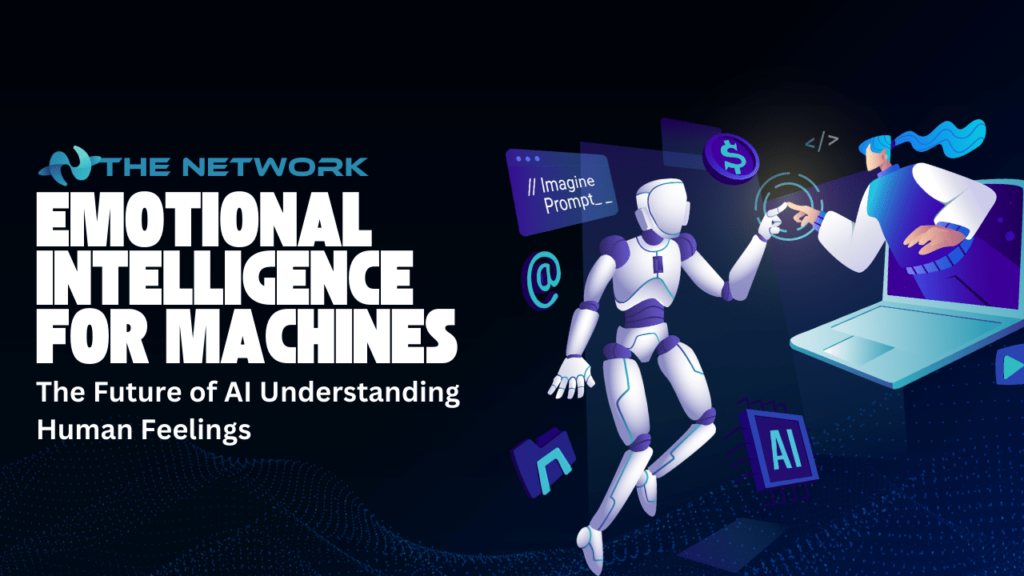Emotional Intelligence for Machines: The Future of AI Understanding Human Feelings

Imagine a world where your computer not only processes your commands but also understands your emotions. Researchers at the University of Jyväskylä have made this possible by developing a model that enables computers to interpret human emotions using principles of mathematical psychology. This groundbreaking advancement could revolutionize how we interact with technology, transforming computers from mere tools into empathetic partners. By predicting emotions such as happiness, boredom, irritation, rage, despair, and anxiety, this model promises to make our digital experiences more intuitive and responsive.
Understanding the Predictive Model
The model developed by the researchers is rooted in mathematical psychology, designed to predict a user’s emotional response by simulating cognitive evaluation processes. It works by assessing how users react to various events, considering their emotional and cognitive states. For instance, encountering a computer error during a critical task can evoke anxiety in an inexperienced user, while an experienced user might feel irritation. The model’s ability to predict such emotions allows it to offer tailored responses to mitigate negative feelings.
Adaptive AI: Guiding Users Through Emotions
One of the most exciting aspects of this model is its potential to help computers adapt their behavior based on user emotions. If a user becomes anxious or irritated, the AI can provide additional instructions or redirect the interaction to alleviate stress. This proactive approach can significantly enhance user experience by ensuring that the technology is responsive and empathetic.
Integration and Real-World Applications
Integrating this model into AI systems opens a plethora of applications. In office environments, AI could predict and mitigate user stress, improving productivity and satisfaction. On social media platforms, it could manage emotional dynamics to create healthier online interactions. Furthermore, in educational settings, emotionally intelligent AI could tailor learning experiences to individual needs, making education more effective and engaging.
Ethical Considerations
As with any advanced technology, there are ethical concerns surrounding the use of emotionally intelligent AI. Privacy issues arise as the system would need to analyze and store emotional data. There’s also the risk of manipulation, where companies might exploit this technology to influence user behavior for commercial gains. Ensuring transparency and ethical guidelines will be crucial in the deployment of such systems.
Key Points of the Study
- Mathematical Psychology Foundation: The model is based on emotional theory and mathematical psychology, ensuring a robust scientific approach to understanding emotions.
- Emotion Prediction: It can predict emotions like happiness, boredom, irritation, rage, despair, and anxiety by simulating cognitive evaluations.
- Real-World Scenarios: By assessing user reactions to various events, the model can tailor its responses to alleviate negative emotions.
- Proactive Emotional Management: The AI can predict user distress and take steps to mitigate it, improving user experience.
- Broad Applications: From offices to social media, and educational environments, the model has vast potential to enhance human-computer interactions.
Advantages and Disadvantages
Advantages:
- Improved user experience with empathetic technology.
- Enhanced productivity and satisfaction in professional settings.
- Healthier online interactions through emotional management.
- Tailored educational experiences for better learning outcomes.
Disadvantages:
- Privacy concerns with emotional data analysis.
- Potential for manipulative use by corporations.
- Ethical challenges in transparency and data security.
Five Facts on the Topic
- The model predicts emotions by simulating human cognitive evaluations.
- It can understand and react to emotions such as joy, irritation, and anxiety.
- Researchers used principles of mathematical psychology to develop the model.
- Emotional AI can be integrated into various real-world applications.
- Ethical concerns include privacy issues and potential manipulation of user emotions.
Benefit of Online Data and Automated Filtering
Combining online data with automated filtering enhances the model’s ability to understand and predict user emotions more accurately. This integration allows for real-time updates and continuous learning, ensuring that the AI remains effective and relevant.
Predictive AI and User Distress
If a computer could preemptively predict user distress, it could take steps to prevent negative emotions, leading to more positive interactions. For instance, in a stressful work environment, the AI could suggest breaks or provide calming content, improving overall well-being.
Future Implications of Emotionally Intelligent AI
The future implications are vast, with emotionally intelligent AI potentially transforming various sectors. From personalized customer service to mental health support, the ability of AI to understand and predict human emotions could lead to more humane and effective technological solutions.
School or Homeschool Learning Ideas
- Emotion Recognition Activity: Students can learn to identify and label emotions in themselves and others, using the AI model as a guide.
- AI and Ethics Debate: Host a debate on the ethical implications of AI understanding human emotions.
- Mathematical Psychology Lessons: Teach the principles of mathematical psychology and how they apply to AI.
- Role-Playing Scenarios: Students act out different emotional responses to computer interactions and discuss how AI could respond.
- Project-Based Learning: Create projects where students design simple models predicting emotions based on user input.
What Our Children Need to Know
- Privacy Matters: Understanding the importance of data privacy and how their emotions are used.
- Ethical AI: Considering the ethical use of AI in daily life.
- Emotional Awareness: Recognizing their emotions and how technology can respond.
- Future Careers: Exploring careers in AI and emotional intelligence technology.
- Critical Thinking: Analyzing the benefits and potential risks of emotionally intelligent AI.
The Big Questions
- How can AI understanding emotions change our daily interactions with technology?
- What are the potential risks of AI predicting and reacting to human emotions?
- How can we ensure the ethical use of emotionally intelligent AI?
- What are the most exciting applications of this technology in real life?
- How can students get involved in the development of emotionally intelligent AI?
Conclusion
The development of AI models that understand human emotions marks a significant step forward in technology. While the potential benefits are vast, from improved user experiences to ethical considerations, it is crucial to address the associated risks. As we continue to innovate, maintaining a balance between technological advancement and ethical responsibility will be key.





Responses